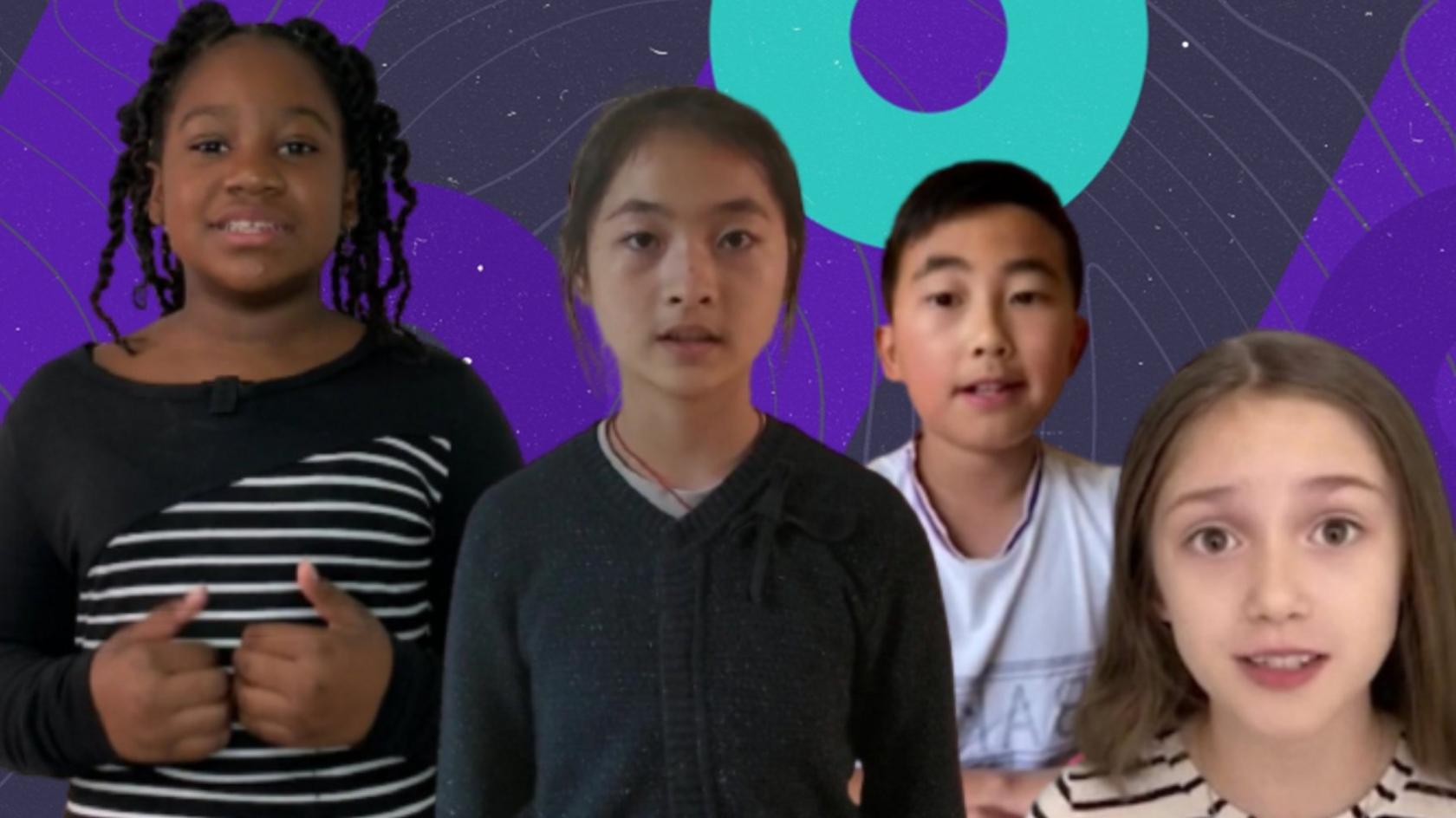Montana children win fossil fuel court case against state
- Published
- comments
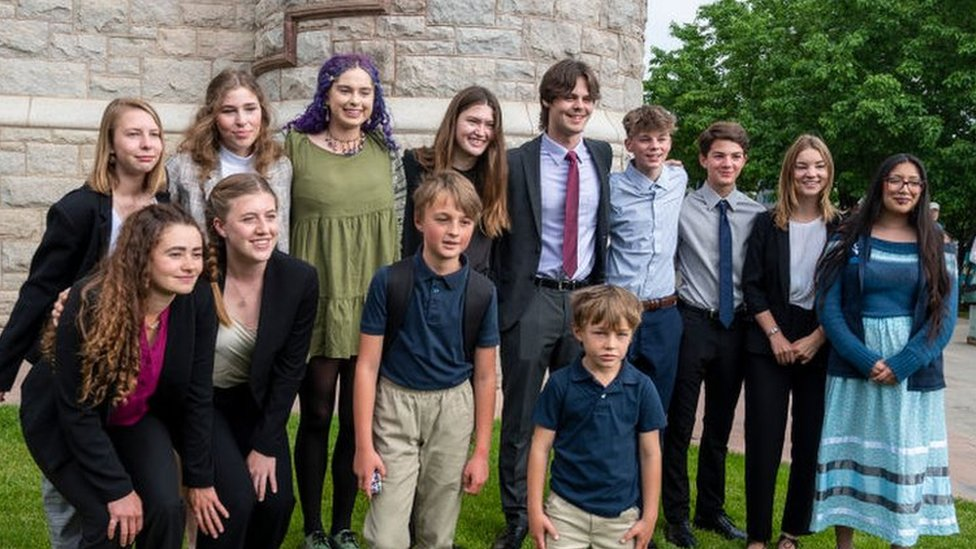
16 youth activists took on their state in a legal battle on climate change - and won!
Young climate activists in the United States have won a legal battle against the state of Montana's government for violating their right to a "clean and healthful environment".
The 16 activists, aged between five and 22, used a law in Montana's constitution - or rule book - to fight their case.
They argued that the state's current environmental policy didn't allow the negative impact of fossil fuels to be assessed properly, and that this violated part of the 1972 constitution guaranteeing the right to a "clean and healthful environment."
The judge said the activists "have proven that as children and youth, they are disproportionately harmed by fossil fuel pollution and climate impacts".
How did the Montana climate activists win their case?
Over the trial the young people shared the many ways that Montana's lack of action on fossil fuels and the climate crisis was impacting their daily lives.
From the way it affects Native American tribes' lives, to smoke from wildfires causing breathing problems.
The state and each person shall maintain and improve a clean and healthful environment in Montana for present and future generations.
It's the first time a case like this - children taking the government to court over the environment - has won and could mean more case like this going to court.
Here are more children around the world taking action on environmental issues.
Portugal
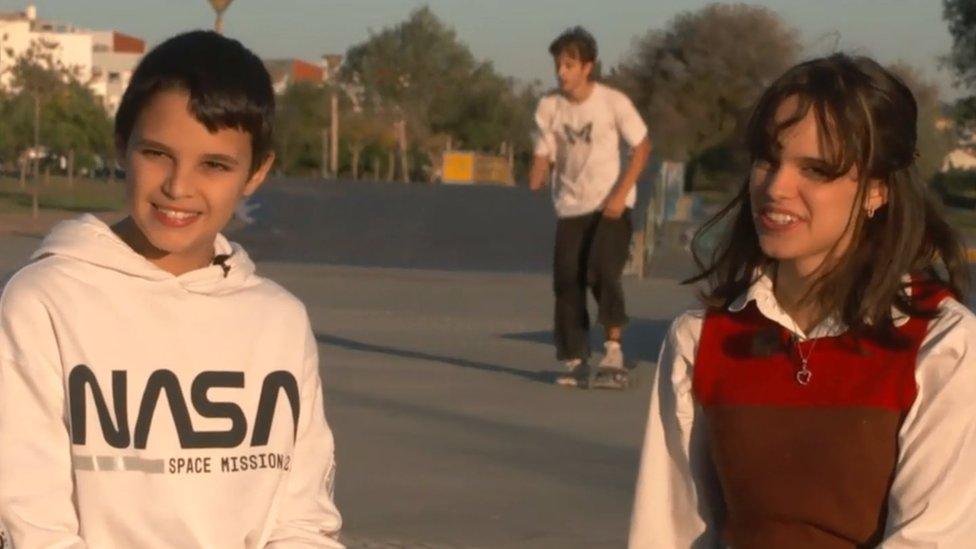
André is 15 and Sofia is 18 but that hasn't stopped them from making their voices heard
A group of children in Portugal used a human rights law in 2022 to force European politicians to tackle climate change - and they didn't just take action against their country, but a total of 33 European countries.
It was the first time a climate-related case has been filed at the European Court of Human Rights.
The case argued that governments in 33 European countries - including the UK - have not done enough to prevent the impact of climate change.
The children said this goes against their right to "life, privacy and non-discrimination" under the European Convention on Human Rights.
Meet the kids using a human rights law to tackle climate change
After seeing the damage caused by wildfires in their home country of Portugal, André Oliviera, his sister Sofia and their friends became determined to make sure that leaders who pledged to reduce harmful emissions would be forced to act.
Sofia added: "If adults are not doing the right thing, children and young adults might do the right thing. This is why it is young adults in this case and not adults".
The court has accepted their case and given it priority status and four more children in Portugal are taking on the fight against the 33 governments. The hearing will take place on September 27 2023.
Netherlands
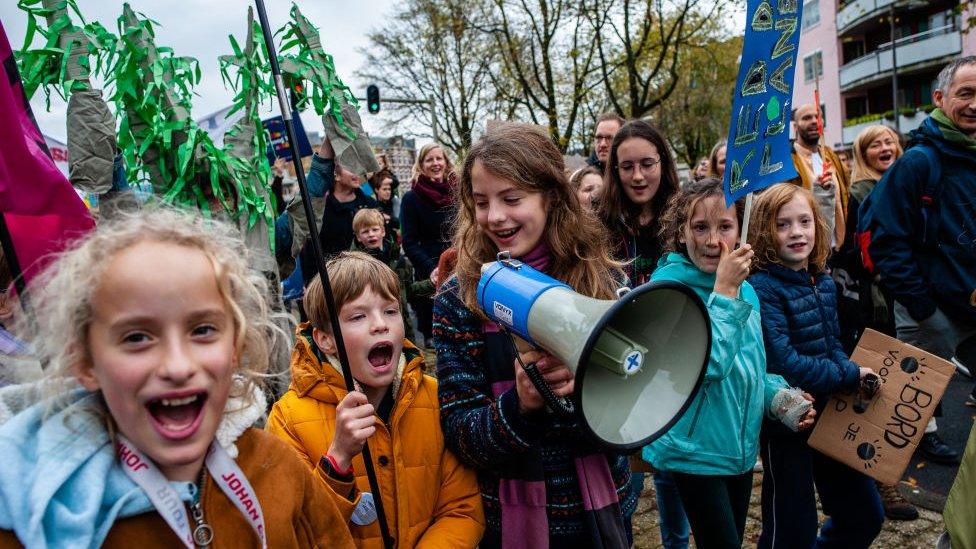
This march in Holland took place at the same time that the UN Climate Change Conference in Glasgow, to make a call for a drastic change and to demand that the Dutch government take action
Young people in the Netherlands sued their government for inaction on climate change back in 2015, and won an important victory.
The court ruled that the government had explicit duties to protect its citizens' human rights in the face of climate change and must reduce emissions by at least 25% compared with 1990 levels by the end of 2020.
Judges rejected the government's claim that the action the children were demanding would be too expensive to carry out, and ordered the government to make twice the amount of carbon cuts made since 1990 - and to achieve it all in just one year.
Although the government appealed the decision to the Dutch top court the ruling was upheld six years later, meaning that the higher court agreed with the original decision in favour of the children.
Colombia
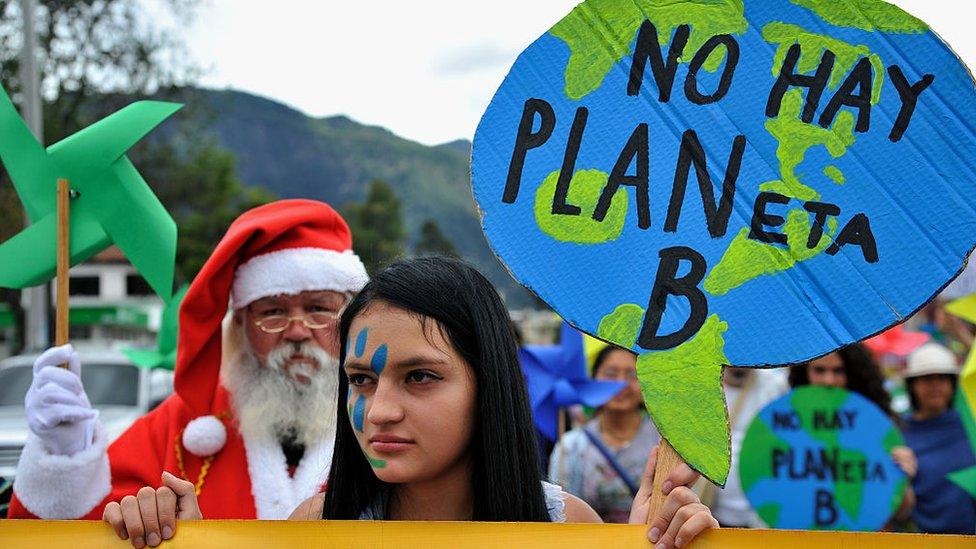
Young people in Bogota in Colombia gathered to protest
In 2018, 25 young people won their lawsuit against the government for failing to protect the Colombian Amazon rainforest.
The court said that the deforestation went against the rights of both the youths and the rainforest and ordered the government to reduce it to net zero by 2020.
The Supreme Court ultimately ruled in their favour, making it the first time that a lawsuit of this kind had been decided in support for the environment in Latin America.
The court even decided to recognise the Amazon as having the same rights as a human being.
Despite the ruling, however, deforestation in the Amazon increased, and about 75% of all deforestation in Colombia has occurred in the Amazonian region. so the young people returned to court a year later to ask the court to force the government to take action.
Pakistan
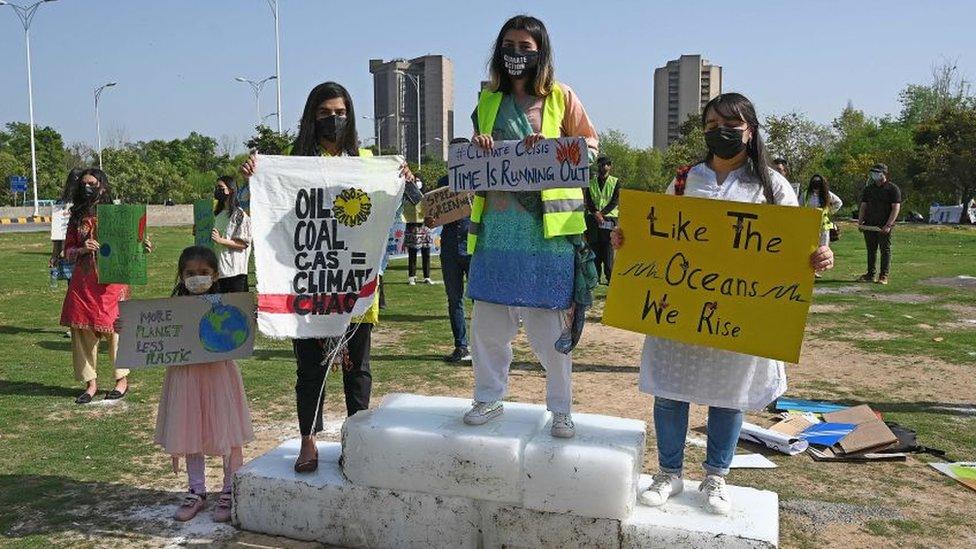
This Fridays for Future event was held in Islamabad in Pakistan in 2021
In 2016, seven-year-old Rabab Ali sued the government for violating her rights, and the rights of her generation, to a healthy life.
Her case was represented in the Pakistan supreme court by her father, an environmental lawyer.
She argued that extracting coal in a local distract would drastically increase Pakistan's carbon dioxide emissions, polluting the air and causing problems for future generations.
This was the first time ever in Pakistan's courts that someone under the age of 18 had brought a lawsuit of this kind but the case was allowed to proceed.
Germany
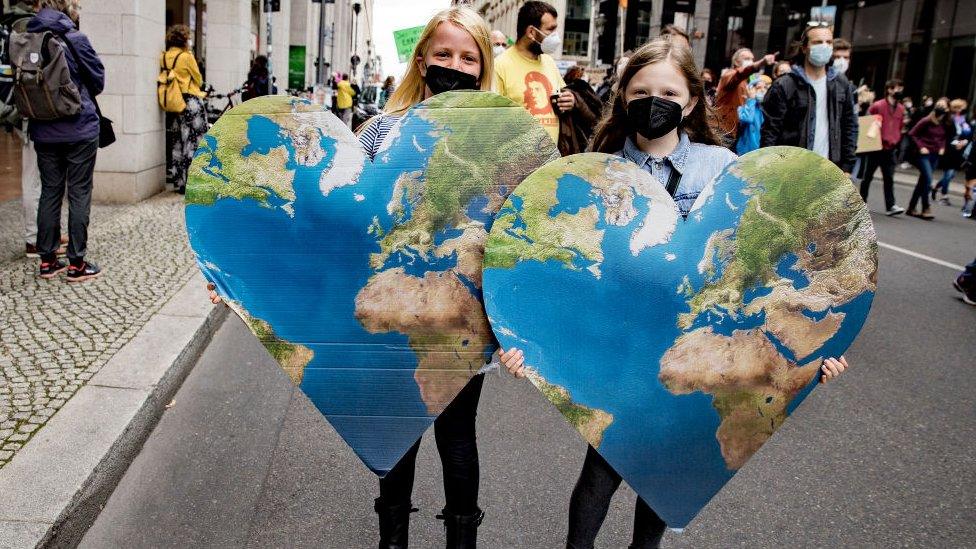
Children hold signs during a climate strike by Fridays for Future 2021 in Berlin
In a case brought earlier this year, Germany's supreme court ruled that the country's climate law must be changed and ordered the government to create clear emissions reduction targets after 2030.
The case was brought by nine youth climate activists who argued that the law in its current form goes against their human right to a future, as it does not go far enough to reduce emissions and limit global temperature rise to 1.5C.
Legal experts called the decision unexpected and said it was something that had never happened before in Germany.
- Published14 August 2023
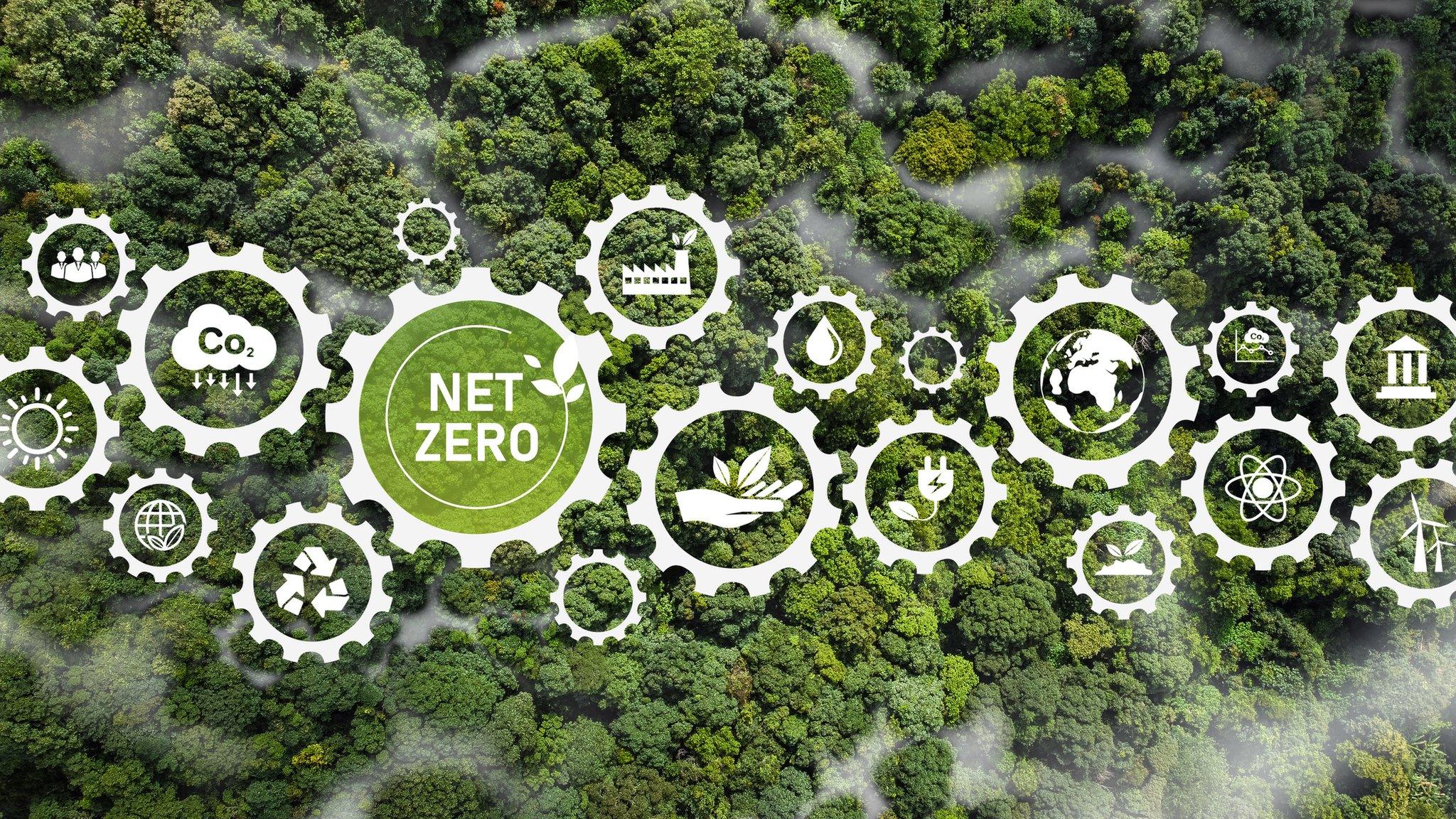
- Published20 January 2020
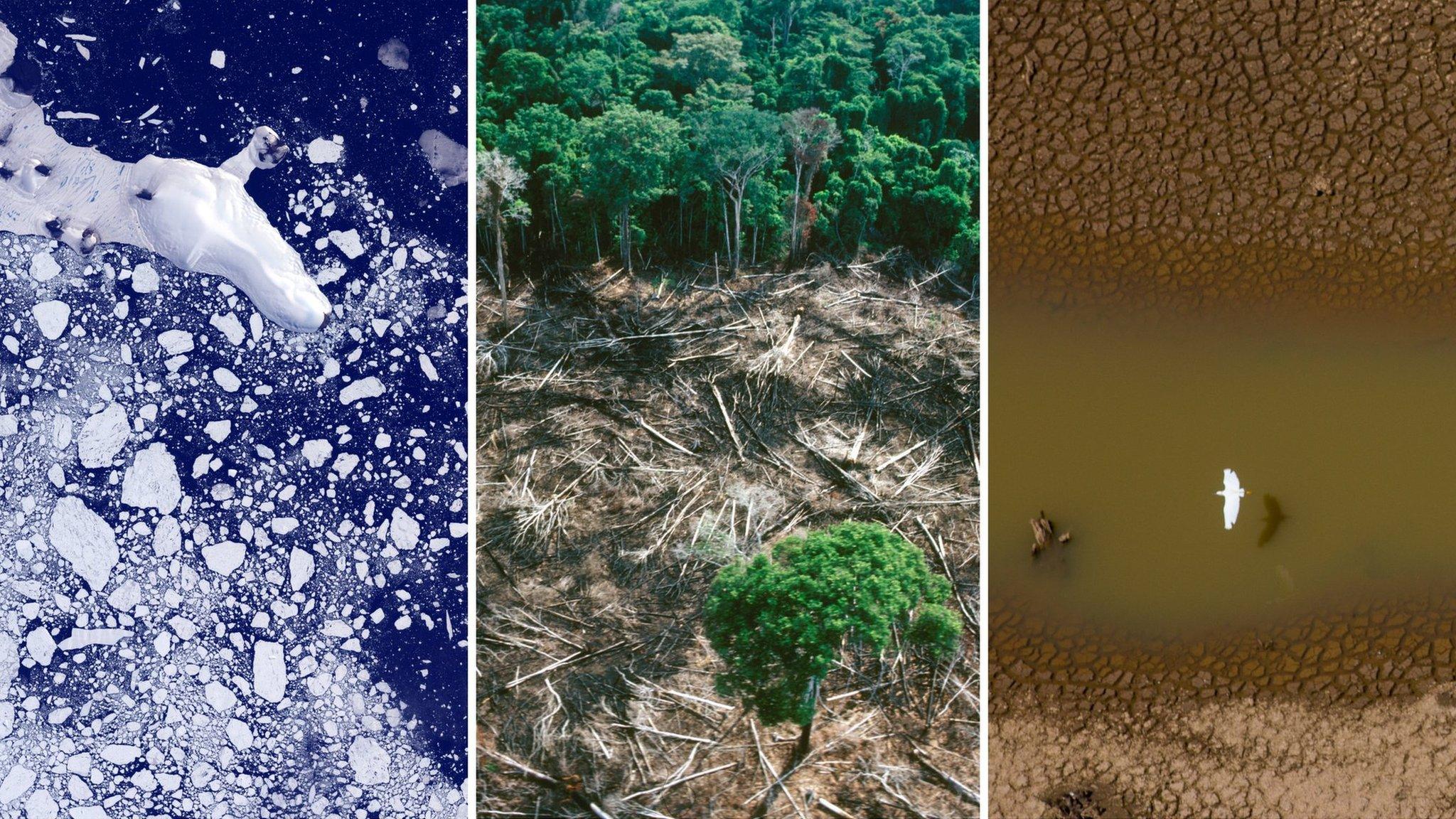
- Published5 November 2021
